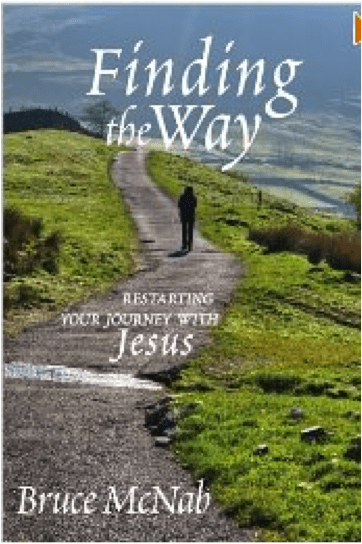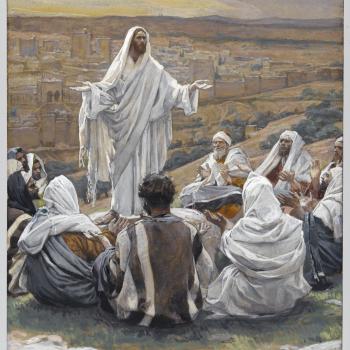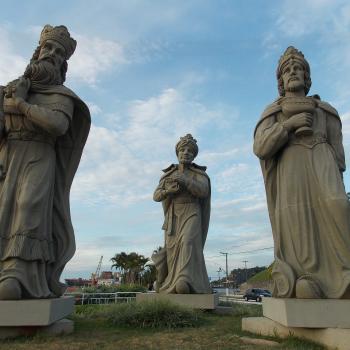 (A Book Review) As someone who has lived in a one-mile radius for thirty years, the idea of life as journey requires some imagination. Yet the journey image, or the notion of life as pilgrimage, has a long and venerable history because it resonates with each of us, no matter the external structure of our lives.
(A Book Review) As someone who has lived in a one-mile radius for thirty years, the idea of life as journey requires some imagination. Yet the journey image, or the notion of life as pilgrimage, has a long and venerable history because it resonates with each of us, no matter the external structure of our lives.
Young, undetermined, and open to endless possibilities? We wonder – where to go, in what direction to aim, what path to take….
Middle of life, poised between youth and age, looking back while looking forward? We wonder – is this the right trajectory? Am I headed in the right direction?
Older, settled, concluding life’s affairs? Still we wonder – when I arrive, where will I be? How will I know it? What is left?
The poet T.S. Eliot reflected deeply on this internal hunger that so imitates movement. At every stage of life, we need to awaken our seeker souls, not because we cannot discern truth, but because we want more intensity, further union, deeper communion.
Old men ought to be explorers
Here and there does not matter
We must be still and still moving
Into another intensity
For a further union, a deeper communion… (T.S. Eliot, “East Coker”)
Yet we of the 21st century have largely exchanged exploration for mobility, discovery for transience, intensity for restlessness. We flit from one tasty adventure—spiritual or otherwise—to another, and still we do not find what we seek. All too often we do not even know what we seek, and we are not able to discern it from afar and move toward it.
So here I am, in the middle way, having had twenty years—
Twenty years largely wasted, the years of l’entre deux guerres—
Trying to learn to use words …
And so each venture
Is a new beginning… (T.S. Eliot, “East Coker”)
This business of a new beginning is the topic of Bruce McNab’s new book, Finding the Way: Restarting Your Journey with Jesus. Like Eliot who lived l’entre deux guerres (“between the wars”)—suspended in hope—we too are often stranded on “the long road that is the soul’s way home to God,” as McNab puts it, pinioned between discarding a religious past that lacked any vitality and refusing to engage in institutional formality just for the sake of, well, institutional formality.
McNab—Episcopal priest, speaker, author, retreat leader—has listened to generations of seekers who, like Eliot, have lived in the years of “l’entre deux guerres,” the years of in-betweeness, the years of having left something and yet not arrived at something else, the years of spiritual liminality. Because he writes for former Christians, nominal Christians, or those who are ready to renew the search—for “returnees and restarts,” as he puts it, I honestly expected the book to consist of the simplistic “tasters” so often offered to seekers, like little tiny sips of pink Catawba wine in little tiny cups for little tiny appetites.
But no, no, so happily no. Finding the Way is a full-bodied exploration of the heart of Christian faith and practice, right down the center of historic Christianity. McNab writes creatively and compellingly, bringing to the forefront the issues that belong at the forefront, and leaving the rest behind. His style is clear and direct, honestly confronting the various realities that have driven so many away from the Church. He writes for those who may have lost their way spiritually but who hunger deeply for a real relationship with God that gives meaning, purpose, and comfort to their lives.
How refreshing. Christian books are all too often sermons for those who are already hearing sermons, every week in the pew. Who is there to speak to those who have lost their way? To those who have wandered far from Jesus and yet would like to find their way back? To those who have, perhaps, been sitting in those pews but have not yet really started on the Way? Perhaps even to those whose encounters with Christianity have been more hurtful than helpful, whose experiences have been more oppressing and repressing than life-giving? McNab does.
His chapters build naturally, from the first step on the quest through the essentials of the way of Jesus: scripture, experience, worship, prayer, compassion, purpose, community. No Christian life is complete without these components of the fullness of knowing Christ, and McNab offers a rich exploration of each of these ingredients. He draws freely on a wide variety of writers, some I like fiercely (like Michael Casey) and others I most definitely do not like (who will remain unnamed). In every case, McNab gently points the reader to the deep history and community of those who have followed the Way over millennia. He recognizes the many, many, many challenges and obstacles to faith in the 21st-century, yet also insists that it is possible to find the Way, to live the Way, to love the Way.
I particularly liked the delicate balance McNab brings to the tension between the commonalities of Christian faith and practice—the necessary orthodoxy and orthopraxy that ground the true meaning of Christianity—and the wild and rich diversity of Christian faith and practice—the myriad ways and forms and methods and accents of Christianity in lives scattered over a globe and through untold generations.
If we create apparently stable and rooted worlds for ourselves, we still move through time and desire, and the pursuit is never complete. If we embrace chaotic or nomadic exteriors, we are still ever longing for home. McNab’s book is, yes, for restarts and returnees, but which of us are not one of those? I restart every morning and return every night. McNab’s book both launched me anew and drew me in again to the Way I want to walk.
We shall not cease from exploration
And the end of all our exploring
Will be to arrive where we started
And know the place for the first time. (T.S. Eliot, “Little Gidding”)












